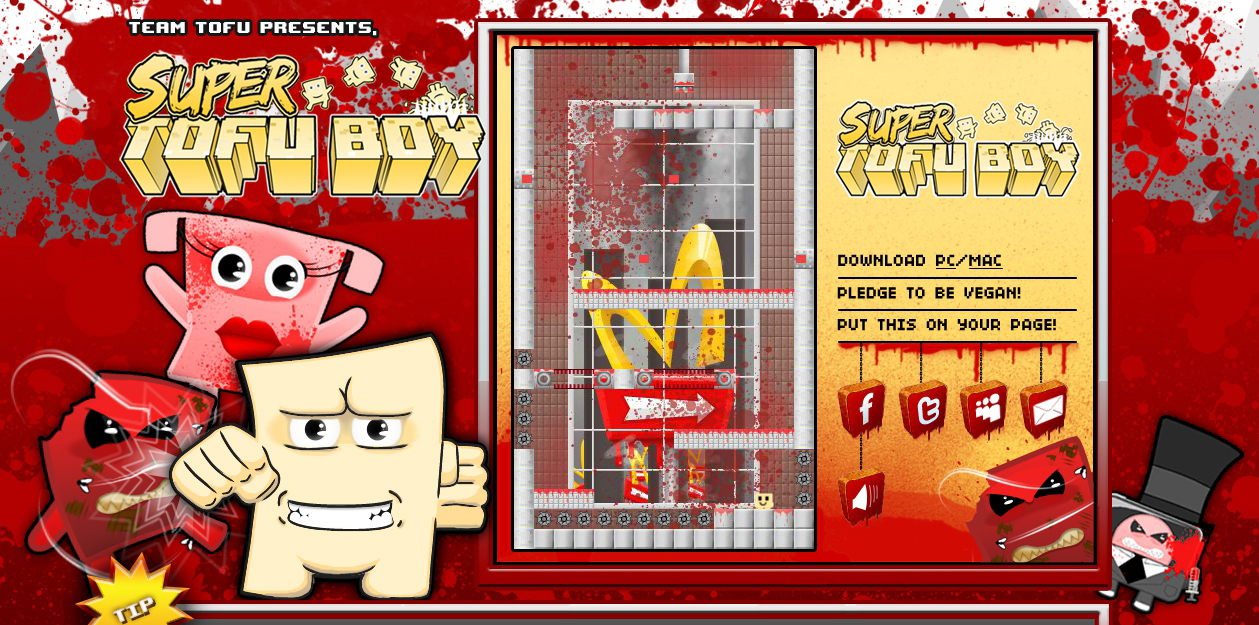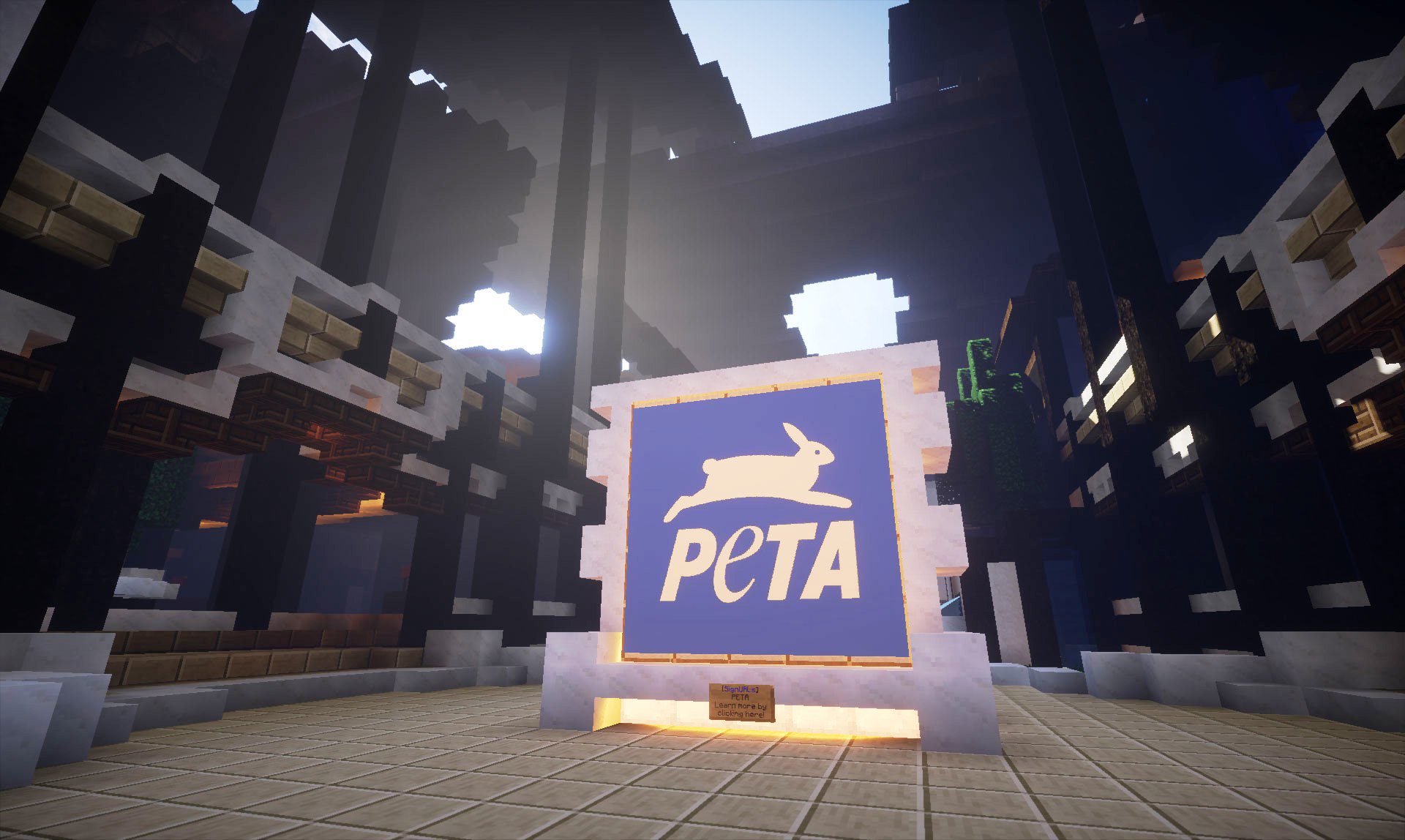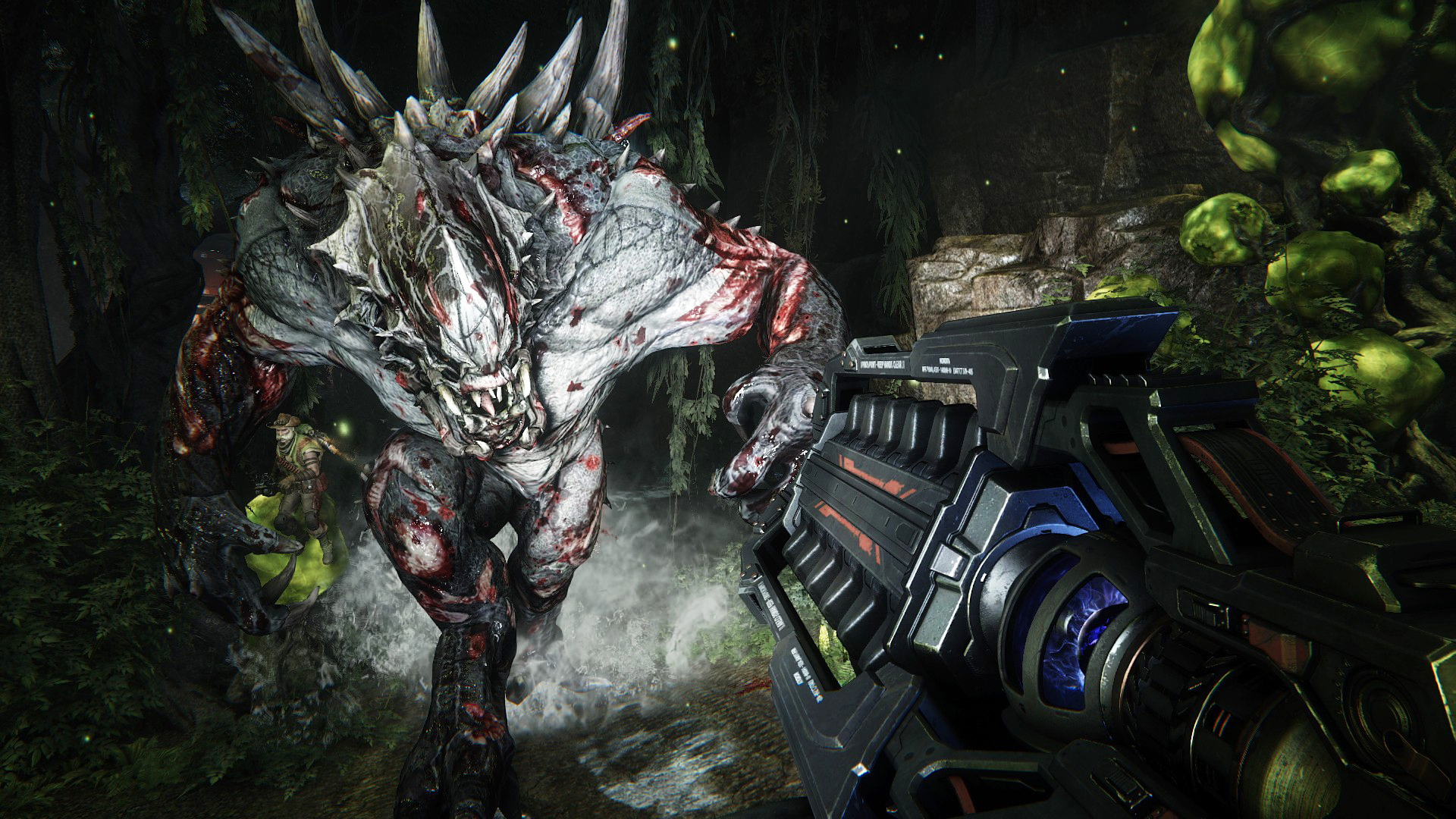How PETA invaded the games industry

Before we get to the People for the Ethical Treatment of Animals and its browser games, a little disclosure of potential bias: I’ve been vegan since early 2014. PETA can’t claim credit for that, though—it’s all thanks to 2011 roguelike Dungeons of Dredmor, whose “Killer Vegan” skill tree makes a compelling case for a plant-based diet. According to DoD, cutting out meat increases your health regen substantially, allows you to blind a foe with sheer self-righteousness, and stops animals from attacking you. There’s a downside to all of this—you can’t beat up bats and the like without incurring penalties—but on the whole, it’s a pretty appealing package. Admittedly, I haven’t yet noticed any significant boosts to my stats while swilling down my daily repast of baked beans and carrots, but perhaps I just need to level up a bit more.
Dungeons of Dredmor’s gentle satire of veganism is in stark contrast to the strident rhetorical tactics adopted by PETA’s games, the first of which hit the internet back in 2001. The targets of its parodies—many of them developed by New York-based This Is Pop—range from Mario through Frogger to Super Meat Boy and Cooking Mama. All the games follow a certain format: a competent recreation of the basics, bloodspattered cartoon visuals and frequent link-outs to videos about animal suffering or exhortations to go vegan. 2012’s Pokemon Black & Blue, for example, puts you in charge of a brutalised Pokemon team who must battle trainers, fast-food consumers and even Ronald McDonald himself, in order to expose what PETA styles the hypocrisy of caring for imaginary beasties while committing billions of real animals to the grinder. The group’s deranged, not-quite-adult-yet-not-quite-kid-friendly humour is everywhere. Consider the presence of McDonald’s customers who use DDoS attacks, or the immortal line: “Jigglypuff disoriented slaughterhouse workers with a curiously potent salad”.
An endless runner in which a peeled raccoon chases a fur-wearing Mario.
According to This Is Pop, Black & Blue has been a huge success, attracting 1.5 million plays on the day of launch. Super Tanooki Skin 2D is another of PETA’s hits; an endless runner in which a peeled raccoon chases a fur-wearing Mario, it contains links to undercover footage of China’s fur trade. “After viewing this video, which shows raccoon dogs being skinned alive, thousands of people took PETA US’s pledge to go fur-free,” PETA’s senior international media director Ben Williamson told me by email. Much as site advertisers have reaped the benefits of pop-up puzzlers or arcade shooters, so PETA has realised that the engagement potential of an online videogame is much higher than for other media. “Time and time again, PETA US has found its games to be the most popular pages on its website. And people who visit those pages stick around longer than they do on any of the other pages. Games give people an immersive experience that causes them to take an interest in other areas of PETA’s work.”

If they’ve attracted clicks, PETA’s antics have not—putting it mildly—been favourably received by hardcore gaming enthusiasts. It’s frequently objected that the parodies misrepresent the titles on which they riff, that they unfairly brand games as complicit with real-life animal cruelty. Pokemon fans protest that Black & Blue paints the relationship of trainer to Pokemon as one of subjection rather than partnership, while Mario aficionados have slammed Super Tanooki Skin for suggesting that games actually condition which products we buy.

March 2009 Irked by the killing of attack dogs in Call of Duty: World at War, PETA sends copies of Nintendogs to Activision’s HQ, along with invites to an “empathy for animals seminar”.
November 2011 Battlefield 3 is slammed by PETA’s German wing for letting players stab a rat. Apparently, this could have “a brutalising effect on the young male target audience”.
March 2013 PETA gives out leaflets at the StarCraft II: Heart of the Swarm event, reminding guests that “Zerglings have feelings, too”. Terran players aren’t amused.
February 2015 Evolve’s cast of carnivorous beasties attracts PETA’s wrath. According to one protester, “Vegan monsters are grossly underrepresented in the gaming industry.”
Some of these complaints verge on the pedantic, but the general conviction that PETA doesn’t really care for games beyond the publicity they might generate is difficult to wave away. In 2010, Team Meat’s Edmund McMillen baited PETA into putting together a parody of Super Meat Boy by posting under aliases on its forum. The resulting Super Tofu Boy is actually one of PETA’s better titles, but it’s also evidence that the group’s interest in gaming is opportunistic, reactive—which isn’t a great basis for a serious exchange of views.
Williamson disagrees, naturally, commenting that “PETA staff members enjoy playing games and grew up saving animals in games such as Sonic the Hedgehog.” He also feels that the crassness and goofiness of the parodies serve an important purpose—they help PETA reach people through a “bombardment” of advertising on the part of companies that sell animal products. “During the hustle and bustle of daily life, the simple facts alone hardly get a second look,” Williamson explained. “We believe that it’s sometimes necessary to shake people up or make them do a double-take in order to initiate discussion of the status quo.” Still, there’s a thin line between shaking people up and putting them off entirely, and if PETA’s provocations have won it eyeballs, they’ve also exposed it and the animal-rights scene at large to scorn.
This seems a waste of potential, because developers have yet to really dramatise the ecological implications of our vast and growing appetite for meat. According to a United Nations brief from 2010, at least 18% of greenhouse-gas emissions can be attributed to the 54 billion farm animals we slaughter every year; another, supposedly more-representative study by former World Bank analysts bumps the percentage up to 51%. Whether you’re of the opinion that we should eat less flesh or not, this seems fertile territory for a post-apocalyptic series like Fallout, and yet games on the subject are few. The elderly Oddworld titles are the only ones I know of that ponder the meat trade at length, though Ice Pick Lodge’s Pathologic has intriguing things to say about beef, providing you can weather its difficulty curve.
The biggest gaming news, reviews and hardware deals
Keep up to date with the most important stories and the best deals, as picked by the PC Gamer team.
Developers have also proven content to echo many of the ideas on which the meat trade relies—chiefly, the assumption that non-human life is an endlessly self-replenishing natural resource. Most of the time, animals in games are just respawning sacks of XP waiting to be ground up in the machinery of progression systems. PETA is thus, somewhat unbelievably, in a position to make a challenging contribution to a youthful artform while also pursuing its political objectives. Perhaps if it can resist the temptation to stir up controversy for controversy’s sake, it’ll get there. I’m not holding my breath

